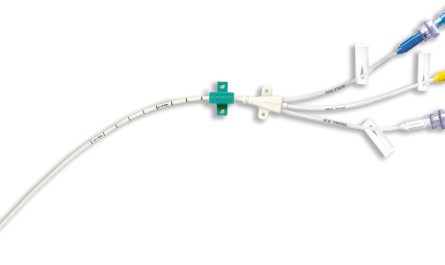The global Peptide Cancer Vaccine Market is estimated to be valued at USD 4.44 billion in 2022 and is expected to exhibit a CAGR of 11.10% over the forecast period 2022-2028, as highlighted in a new report published by Coherent Market Insights.
A) Market Overview:
Peptide cancer vaccines are designed to stimulate the immune system to recognize and attack cancer cells. They work by introducing small fragments of proteins (peptides) that are specific to cancer cells. These peptides are recognized by the immune system as foreign and elicit an immune response against the cancer cells. Peptide cancer vaccines have gained significant attention in recent years due to their potential to provide targeted therapy and personalized treatment options for different types of cancer.
B) Market Dynamics:
The Peptide Cancer Vaccine Market is driven by two major factors: the increasing incidence of cancer and technological advancements in vaccine development.
Driver 1: Increasing Incidence of Cancer
The global incidence of cancer is on the rise, with millions of new cases being diagnosed each year. This growing burden of cancer is one of the primary drivers for the development and adoption of peptide cancer vaccines. These vaccines hold immense potential in preventing cancer recurrence and improving patient survival rates. For example, peptide vaccines targeting melanoma have shown promising results in clinical trials, leading to their approval for use in specific patient groups.
Driver 2: Technological Advancements
Advancements in vaccine development technologies have significantly contributed to the growth of the Peptide Cancer Vaccine Market. The use of bioinformatics and computational modeling techniques has enabled the identification of novel peptide targets for cancer treatment. Additionally, advancements in peptide synthesis and formulation techniques have improved the stability and efficacy of peptide cancer vaccines, enhancing their therapeutic potential.
C) Segment Analysis:
One of the key segments in the Peptide Cancer Vaccine Market is based on cancer type. Currently, the dominance is observed in the segment of lung cancer vaccines. Lung cancer is the leading cause of cancer-related mortality worldwide, and the development of effective vaccines for its prevention and treatment remains a critical need. Peptide cancer vaccines targeting lung cancer antigens have shown promise in clinical trials and are expected to dominate the market due to the high prevalence of lung cancer cases globally.
D) PEST Analysis:
Political: The political landscape plays a significant role in the development and adoption of peptide cancer vaccines. Government policies and regulations related to healthcare and pharmaceuticals can impact the market dynamics.
Economic: Economic factors such as healthcare expenditure, reimbursement policies, and affordability of vaccines can influence the demand for peptide cancer vaccines in different regions.
Social: Growing awareness among the general population about cancer prevention and treatment options, as well as increasing healthcare literacy, can positively impact the market.
Technological: Technological advancements in vaccine development, such as the use of artificial intelligence and next-generation sequencing, are driving the innovation and improved efficacy of peptide cancer vaccines.
E) Key Takeaways:
Paragraph 1: The Global Peptide Cancer Vaccine Market is expected to witness high growth, exhibiting a CAGR of 11.10% over the forecast period. This growth can be attributed to the increasing incidence of cancer and the development of advanced peptide cancer vaccines that provide targeted and personalized treatment options.
Paragraph 2: In terms of regional analysis, North America is expected to dominate the Peptide Cancer Vaccine Market due to the presence of a well-established healthcare infrastructure, high healthcare expenditure, and a strong focus on cancer research and development. Moreover, Asia-Pacific is anticipated to be the fastest-growing region, driven by a large patient population, increasing healthcare expenditure, and rising awareness about cancer prevention and treatment.
Paragraph 3: Key players operating in the global Peptide Cancer Vaccine Market include TapImmune, Merck, BrightPath Biotherapeutics, Sellas, BioLife Science, Boston Biomedical, VAXON Biotech, Lytix Biopharma, ISA Pharmaceuticals, Generex Biotechnology, OncoTherapy Science, Enzo Life Science, Antigen Express, Immatics Biotechnologies, Immatics, Immune Design, Immunomedics, Galena Biopharma, Generex Biotechnology Corporation, and Ultimovacs. These players are focusing on strategic collaborations, partnerships, and acquisitions to enhance their product portfolios and expand their market presence.
In conclusion, the global Peptide Cancer Vaccine Market is expected to witness significant growth due to the increasing incidence of cancer and technological advancements in vaccine development. The dominance of lung cancer vaccines and the growing market in regions like North America and Asia-Pacific contribute to the overall market growth. Key players in the market are actively involved in research and development activities to bring novel and effective peptide cancer vaccines to the market.


